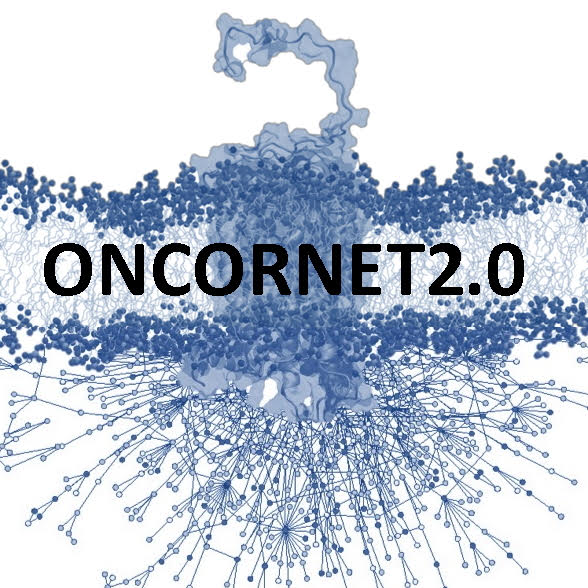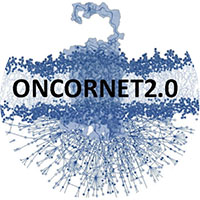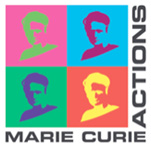Vrije Universiteit Amsterdam
![]()
Lab webpage: www.chem.vu.nl/en/research/division-of-medicinal-chemistry/index.asp
General description
The Medicinal Chemistry (MC) research group at the Vrije Universiteit Amsterdam is a world-leader in GPCR medicinal chemistry, according to recent research assessments. The MC researchers (~40) are investigating GPCR proteins and ligands (small molecules, nanobodies), with a particular focus on GPCR structural biology, interactomics and signalling pathways. Computational design and synthesis of GPCR ligands is a key approach. Special emphasis is given to research on (viral) chemokine (CXCR4, CXCR7) and histamine receptors.
Key research facilities, infrastructures and equipment
The Institute supports state-of-the art core facilities, which facilitate the performance of cutting edge (bio)chemical research with both basic and translational scientific value. The academic group has access to industry standard as well as proprietary molecular modelling software. The computer-aided drug design labs are closely linked with other groups in the medicinal chemistry department. It is tightly linked to the VU Medical Center, Amsterdam. The Medicinal Chemistry group has ample experience in both the biochemical and drug discovery aspects of GPCRs and has collaborated with leading pharmaceutical companies, resulting in e.g. several patented products, with some reaching clinical phase evaluation.
Project members
Prof. Dr. Martine Smit is coordinator of ONCORNET and recently funded ONCORNET2.0. She obtained her PhD in Molecular Pharmacology in 1995 on the regulation of histamine receptors at the Vrije Universiteit Amsterdam. She did a 3.5 year post-doc focusing on oncogenic signaling networks at the department of Pharmacology, Mount Sinai School of Medicine in New York (Prof Ravi Iyengar). Thereafter, she was awarded prestigious personal grants from the Royal Netherlands Academy of Arts and Sciences (KNAW)(1999-2004) and the Netherlands Organisation for Scientific Research (NWO) VIDI (2004), VICI (2014-2021) to establish and extend the research line on human and viral chemokine receptors at the Vrije Universiteit Amsterdam. As of 2005 she was appointed as professor ‘Target and Systems Biochemistry’.
Her research interests are directed at novel concepts of G protein-coupled receptors (GPCRs) (e.g. constitutive activity, ligand-biased signaling), nanobodies targeting GPCRs and understanding of (oncogenic) signaling networks activated by human and viral chemokine receptors. These lines of research are closely linked to design (modeling) and synthesis programs within the section of Medicinal Chemistry. Smit was involved in 3 TI Pharma projects and coordinator of a STW program on nanobodies (2011-2015), co-PI of NWO TOPPUNT and coordinator of ONCORNET. Within both ONCORNET ITN networks 15 PhD students focusing on oncogenic GPCRs (CXCR4, ACKR3 (CXCR7)) are being trained to become the next generation of GPCR drug discovery scientists.
Website: https://research.vu.nl/en/persons/mj-smit
Prof. Dr. Jacqueline van Muijlwijk-Koezen is Group leader Innovations in Human Health & Life Sciences. This Chair aims to apply the theorie of sicence education within the context of human health and life sciences. The research focuses on innovations and didactics in science education, with a special emphasis on pharmaceutical sciences and drug discovery research as embedded within the Amsterdam Institute for Molecules, Medicines and Systems. In order to find optimal learning methods, Jacqueline van Muijlwijk will continue her research on new teaching concepts and innovative learning approaches. The studies do not only lead to new insights and stimulate discussions but can also be implemented in the various study programmes of the faculty. For example, the study programme Pharmaceutical Sciences already implemented several educational innovations and students benefit from the integration of theory and practice. By focusing on the highly innovative field of drug discovery, with many fascinating aspects and as many unanswered questions, we stimulate the en-thusiasm and curiosity of science students.
Since november 2017 she is Vice-Dean Education of the Faculty of Science
Website: https://research.vu.nl/en/persons/je-van-muijlwijk-koezen
Prof. Dr. Rob Leurs studied Medicinal Chemistry at Vrije Universiteit Amsterdam and graduated in 1987. He performed his PhD research on G-protein coupled receptors and obtained his PhD degree from Vrije Universiteit Amsterdam in 1991. As a postdoctoral fellow at INSERM in Paris, he was involved in the cloning of genes encoding histaminergic and serotonergic receptors. In 1993, he was awarded with a 5-year fellowship of the Royal Netherlands Academy of Arts and Sciences. Rob Leurs was appointed as assistant and full professor of the Division of Medicinal Chemistry in respectively 1998 and 2000. From 2003 to 2005, he was one of the two scientific directors of the Leiden-Amsterdam Center of Drug Research. From 2005 to 2008, he was member of the executive board of the Top Institute Pharma. Professor Leurs served as director of the Department of Chemistry and Pharmaceutical Sciences in 2006 and as vice-dean of the Faculty of Science from 2007 until 2010. He was awarded the Galenus Research Prize in 1997, the Organon Award for Pharmacology in 2000, and a Pfizer Academic Award and a STW/NWO Pionieer grant both in 2001. Moreover, the research group was selected as one of the few Dutch centers of excellence in Chemistry in 2014 and awarded 2 M€ TOP-PUNT grant of the Dutch foundation for Chemical Sciences. In 2016, he has been appointed as member of the Royal Netherlands Academy of Arts and Sciences.
Professor Leurs is currently involved in research on G-protein coupled receptors, with specific emphasis on ligands and receptor proteins for histamine and chemokines. Moreover, he is co-founder of Griffin Discoveries, a company that is valorizes the G-protein coupled receptor expertise and is currently involved in the discovery and development of GPCR receptor ligands. Next to that, he has in recent years started a new line on structure based development of potential drugs against Neglected Tropical Diseases. Prof. Leurs has been project leader of a NTD project of the Dutch Top institute Pharma and project leader of the EU-funded program Phosphodiesterase inhibitors for Neglected Parasitic diseases (www.PDE4NPD.eu).
Website: https://research.vu.nl/en/persons/r-leurs
Prof. Dr. Iwan de Esch studied Organic Chemistry at Radboud University Nijmegen. From 1994 to 1998, he performed his PhD studies at the Department of Pharmacochemistry at Vrije Universiteit Amsterdam (promotor: prof. Timmerman) and at the University of Cambridge. Subsequently, he performed post-doctoral research in the Drug Design Group at the University of Cambridge (UK). The research of this academic group resulted in the biotech De Novo Pharmaceuticals, which De Esch co-founded in 2000 and where he worked as a group leader and project leader. He returned to academia in 2003 and became assistant and subsequently associate professor in the Division of Medicinal Chemistry at Vrije Universiteit Amsterdam. He established the successful research line fragment-based drug design and became co-founder of the spin-offs IOTA Pharmaceuticals (2007) en Griffin Discoveries (2009). In 2011, he was awarded the Galenus Research Price for his work on fragment-based drug discovery and the valorisation of his research. Prof. De Esch has received many research grants, amongst others from Top Institute Pharma, Technology Foundation STW, EU-FP7 and the Innovative Medicines Initiative (IMI). He is the coordinator of a large European network called FRAGNET that aims to further develop fragment-based drug design approaches.
Research
The research of prof. De Esch aims to understand and predict interactions between biologically active substances and their molecular targets, such as receptors and enzymes. The group makes extensive use of Computer-Aided Drug Design (CADD) approaches and structural biology insights. New ligands are designed and synthesized in the organic chemistry laboratories that are equipped with state-of-the-art synthesis equipment and all the necessary analytical chemistry tools. The group is developing and using Fragment-Based Drug Design (FBDD) approaches as this represents an exciting, highly efficient and design-intensive approach that can be applied to many different molecular targets. Various protein classes are being interrogated, including, amongst others, GPCRs, PDEs, AChBP and LGICs, protein-protein interactions, kinases and others. Next to hit finding, the group has ample experience in hit and lead optimization that results in pre-clinical drug candidates that are studied in various disease models within the research institute AIMMS, the Vrije Universiteit Medical Center Amsterdam and various (inter)national collaborations.
Valorisation and education
Prof. De Esch is co-founder of three spin-off biotech companies, illustrating the valorisation potential of his research. Moreover, he is involved in Science, Business & Innovation research, that focuses on the valorisation of scientific knowledge. De Esch’s scientific and valorisation expertise also plays an important role in the Bachelor’s and Master’s programmes in Pharmaceutical Sciences, Drug Discovery & Safety, Science, Business & Innovation and at the Amsterdam University College.
Website: https://research.vu.nl/en/persons/ijp-de-esch
Prof. Dr. Peter van der Sijde – https://research.vu.nl/en/persons/peter-van-der-sijde
Dr. Henry Vischer – https://research.vu.nl/en/persons/hf-vischer
Dr. Maikel Wijtmans – https://research.vu.nl/en/persons/m-wijtmans
Dr. Marco Siderius – https://research.vu.nl/en/persons/mh-siderius
Follow us on
Contact details
Please contact us at:
e.v.langemeijer@vu.nl
ONCORNET Coordinator
Vrije Universiteit Amsterdam




